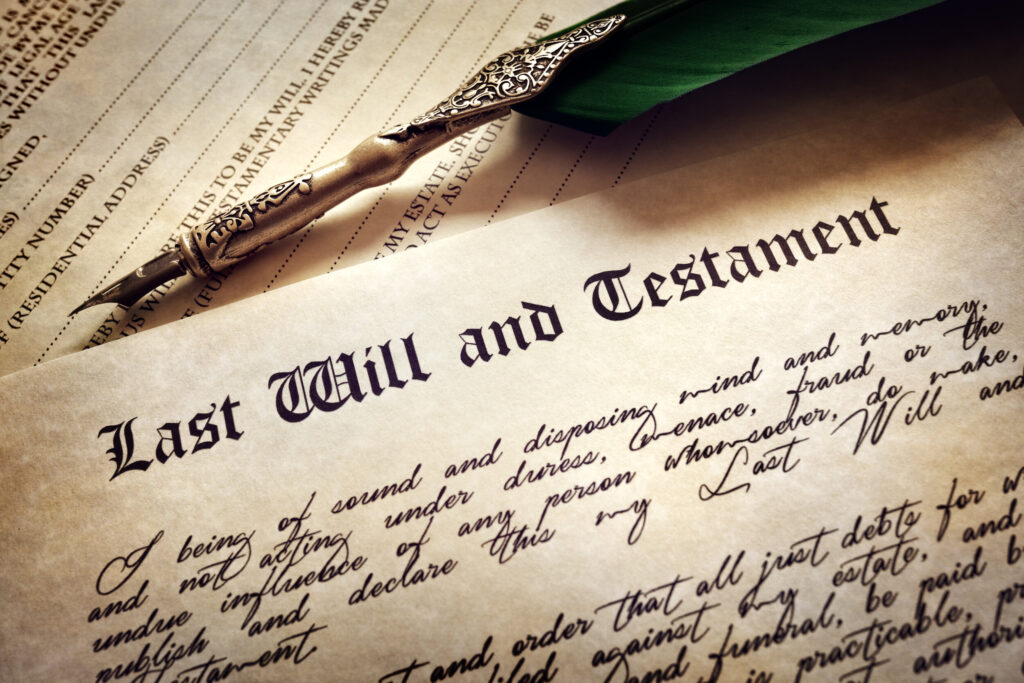
Wills: A will is a legal document that addresses the following:
• Designation of beneficiaries
• Designation of guardianships for children, if any
• Funeral and burial preferences
Trusts: A trust is an arrangement in which a trustee holds or manages property for the benefit of self or a designated beneficiary. Some of the benefits of having a trust are:
• Reducing taxes
• Controlling assets after a death
• Providing for spouse or children during and after life
• Protecting disabled children (through a special needs trust)
• Protecting beneficiaries from creditors
• Protecting bank accounts
• Avoiding probate

Our Frequently Asked Questions page should be able to assist.
To answer this question it is important to explore the differences between Wills and Trusts and the advantages and disadvantages of each document.
Wills and trusts are similar in one principle respect. Both documents provide express instructions stating who will receive a person’s estate when that person dies. It is literally a chance to control your assets after you have died. Both documents identify certain background information including marital status, identification of children and other individuals who you wish to receive a share of your assets. Both documents also provide basic background information to make sure that anyone reading your Will or Trust will have all of the personal information necessary to distribute your estate.
The similarities described above are relatively simple and do not normally have a great deal of impact on the distribution of a persons assets following death. On the other hand, the differences between the preparation and use of Wills and Trusts are significant.
A Will is a relatively short document. It identifies a person’s heirs. The Will can only transfer assets, after death, with the permission and Order of the Superior Court. For some people this is a means of making sure that a judge will review their estate and make sure that the estate is transferred to the people designated in their Will. On the other hand, many people try to avoid forcing their children or other heirs wait while the court probates their estate. In addition to court supervision the estate is managed by an Executor, or administrator who appointed by the court.
The executor reports to the court and provides the court with all of the information necessary to process the estate and to make an order for distribution. The administrator’s job is very important because they have control of the estate subject to relatively limited review by the court. As a result, it is very important, in preparing a Will to select an Executor that you trust to make sure that your spouse, children or other heirs are protected.
An executor is normally an immediate family member such as a spouse or adult child. However, any competent adult can be selected as an executor. In some cases, a person preparing a will may select a bank or some other third party to act as an executor.
There are two major drawbacks when using a Will instead of a Trust.
First, the costs incurred whenprobatingan Estate include court filing fees, costs of publication in a local newspaper, attorney’s fees and fees payable to the executor of the estate. Most of these costs and fees are not necessary when administering a Trust.
The second problem associated withprobateis the time required to complete the transfer of assets from the estate to the deceased person’s heirs. A standard Probate will normally require 6 -10 months before a Court order to distribute the Estate is entered.
There are three basic differences between a trust and a will. These differences give the trust a significant advantage to most people preparing an estate plan.
First, a trust can be distributed to the heirs in a relatively short period of time, and generally far more quickly than would be possible with a Will.
A second advantage to aTrustis that the costs and fees associated with a Will are largely unnecessary.
The third advantage to using a Trust is that it allows you much greater flexibility in the time and manner of distribution of the Estate. This is important with blended families where each spouse want their husband or wife to have a lifetime of income, while preserving the estate for distribution to children at a later date. Similarly, a Trust can preserve some or all of the Estate for the benefit of minor children, disabled children or dependent adults.
The information you obtain at this site is not, nor is it intended to be, legal advice. You should consult an attorney for advice regarding your individual situation. We invite you to contact us and welcome your calls, letters and electronic mail. Contacting us does not create an attorney-client relationship. Please do not send any confidential information to us until such time as an attorney-client relationship has been established. Prior results do not guarantee a similar outcome.